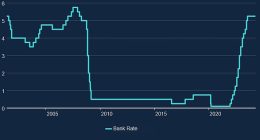
WASHINGTON—Canada will be forced to end tariffs on U.S. dairy products under a milestone decision Tuesday that could allow American dairy farmers to increase sales to Canada by more than $200 million annually.
The ruling came in the first-ever use of a new dispute resolution panel established by the U.S.-Mexico-Canada Agreement. The U.S. contended that Canada used a complex set of tariff-rate quotas to reserve a share of the dairy market exclusively for Canadian dairy processors in violation of the 2020 pact.
“Today’s decision is an important victory for U.S. dairy farmers,” said Jim Mulhern, the president of the National Milk Producers Federation. “The United States and Canada negotiated specific market access terms covering a wide variety of dairy products, but instead of playing by those mutually agreed upon rules, Canada ignored its commitments.”
Canada didn’t commit to a specific course of action but acknowledged the Feb. 3 deadline to resolve the matter. In a joint statement, Canada’s ministers of trade and agriculture said they “continue to stand up for its dairy industry, farmers and workers and the communities they support.”
If Canada doesn’t come into compliance by the deadline, the U.S. could begin the process of initiating tariffs or other countermeasures.
Although Canada said aspects of the ruling were in its favor, the panel’s report contained only one ultimate finding—that Canada’s practices were inconsistent with its obligations in the trade deal.
“This is a big deal because it gives credibility to a recent trade agreement at a time when the current administration has expressed doubts about the benefits of trade agreements and has not initiated any new negotiations,” said Jessica Wasserman, a longtime Washington trade attorney and partner at WassermanRowe LLC.
The Trump administration filed an initial complaint about Canada’s dairy quotas in December 2020, leading to discussions between the two nations but no resolution.
In May of 2021, the U.S. escalated that complaint and triggered the dispute resolution process of the USMCA for the first time. The three-member dispute resolution panel was chaired by Elbio Rosselli, a diplomat from Uruguay, under USMCA rules to ensure that panelists are independent and have expertise in international law and trade treaties.
Canadian dairy had been omitted from 1994’s North American Free Trade Agreement, the precursor to the USMCA.
“This historic win will help eliminate unjustified trade restrictions on American dairy products, and will ensure that the U.S. dairy industry and its workers get the full benefit of the USMCA to market and sell U.S. products to Canadian consumers,” said U.S. Trade Representative Katherine Tai, the Biden administration’s top trade negotiator.
Rep. Kevin Brady (R., Texas), the Republican leader of the House Ways and Means Committee, which has jurisdiction over trade deals, applauded the USTR.
“I commend USTR for using USMCA’s new enforcement mechanism to achieve this important result,” he said. “Canada must now do the right thing and come into full compliance with its obligations on dairy.”
Canada’s dairy producers have long fought against opening their market. The country has around 11,000 commercial farms that hold substantial political sway because they are located in a politically important region: rural central Canada, especially French-speaking Quebec.
To protect those interests, Canada uses a quota system it calls supply management. Supporters say the system helps to stabilize prices and domestic capacity of a nutritional necessity.
The U.S. also has a long history of stabilizing and supporting its domestic dairy industry via a complex set of subsidies and regulations controlling the price. Dairy proved to be one of the most difficult issues during the final stage of negotiations between the U.S. and Canada over the trade deal.
The U.S. industry has long argued that Canada’s practices go too far, and almost immediately after the USMCA went into effect, voiced concerns that Canada was violating the deal.
Even with the restrictions in place, Canada is typically the No. 2 market for U.S. dairy exports, after Mexico, so further opening of its market could be a win for U.S. producers. According to the International Trade Commission, the USMCA—if implemented as negotiated—would boost U.S. dairy exports to Canada by $227 million.
Dairy exports to Canada have climbed by about $56 million, compared with when the USMCA took effect, according to Trade Data Monitor, which compiles global import and export data.
Write to Josh Zumbrun at [email protected]
Copyright ©2022 Dow Jones & Company, Inc. All Rights Reserved. 87990cbe856818d5eddac44c7b1cdeb8









